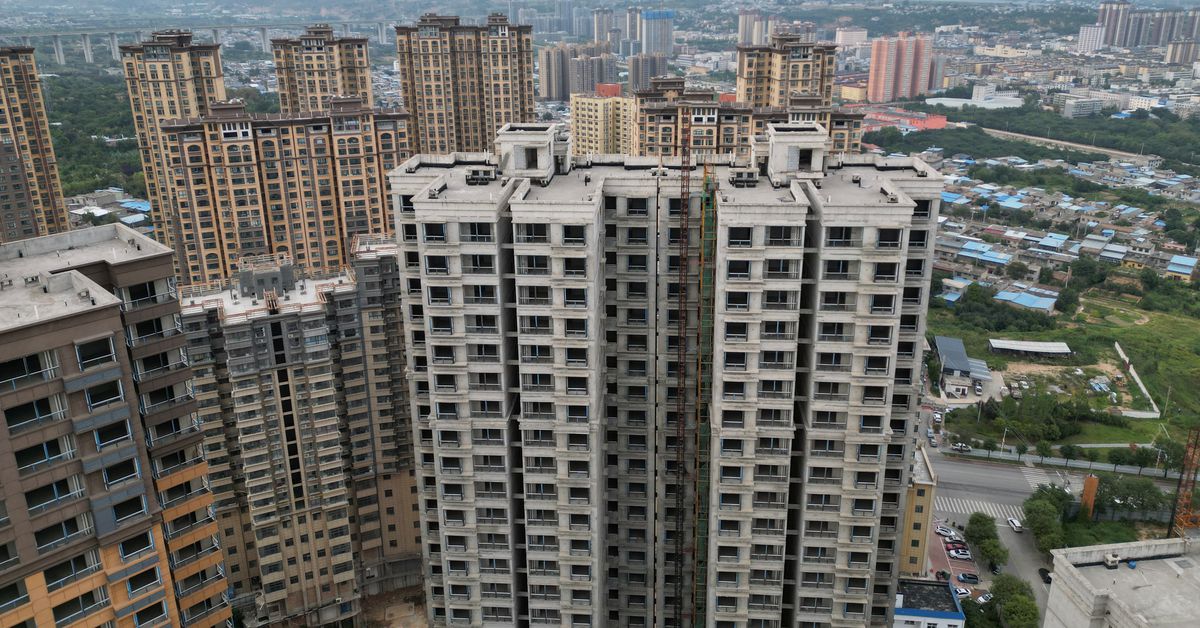Even China’s population of 1.4 billion would not be enough to fill all the empty apartments littered across the country, a former official said on Saturday, in a rare public critique of the country’s crisis-hit property market.
China’s property sector, once the pillar of the economy, has slumped since 2021 when real estate giant China Evergrande Group (3333.HK) defaulted on its debt obligations following a clampdown on new borrowing.
Big-name developers such as Country Garden Holdings (2007.HK) continue to teeter close to default even to this day, keeping home-buyer sentiment depressed.
As of the end of August, the combined floor area of unsold homes stood at 648 million square metres (7 billion square feet), the latest data from the National Bureau of Statistics (NBS) show.
That would be equal to 7.2 million homes, according to Reuters calculations, based on the average home size of 90 square metres.



The democratic world doesn’t start and end with America
I live in Denmark. All liberal democracies are subject to the whims of billionaires.
Edit: oh wait, you’re Canadian. That’s fucking hilarious.
Sure, and I’ll agree that many places are actual democracies, but that doesn’t mean they’re free from corruption. You’re both sort of right. There are democracies that work. But none of them are without corruption.
The corruption is baked into the system. I did not have anything illegal in mind when I wrote that list.
There can be no democracy without economic democracy.
Economic democracies are even rarer than political ones, and I’m not aware of any actually complete one. Europe still gets you closest, especially Germany and Austria, with very strong co-determination laws, in Germany’s case reserving 50% - 1 board seats for the shop floor council – the workers don’t need much capital in that case to control the company.
And as far as I’m aware there’s not, and never has been, a single country that is not politically a democracy that would be an economic democracy. Certain people might be thinking of state capitalist countries in that context but those never liked worker control of anything, not unions, not shop floor councils, not nothing. They just dressed themselves in it. Ask, random example, Solidarność.
I’m aware.